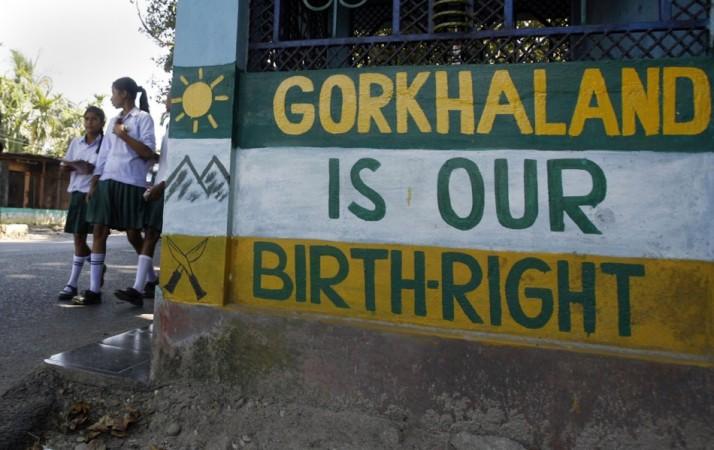
The army was called in after thousands of angry Gorkha Janmukti Morcha (GJM) activists torched police vehicles, set fire to a traffic outpost and pelted stones, injuring 15 cops in this northern West Bengal hill town, where Chief Minister Mamata Banerjee held a state Cabinet meeting on Thursday.
In Kolkata, a Defence Ministry spokesman said two army columns based in Darjeeling were moving out, even as the GJM called a 72-hour shutdown in the north Bengal hills on Friday in protest against "indiscriminate police action on the peaceful demonstration" taken out by its workers.
"Requisition from state government received. Two army columns based in Darjeeling moving out," said Wing Commander SS Birdi, Chief Public Relations Officer of Defence, at Kolkata.
One column comprises around 80 men.
Demanding a separate state of Gorkhaland, the GJM workers engaged in a pitched battle with the police, as panicked tourists tried to rush out.
On the day the state cabinet held its first meeting in Darjeeling in 45 years, the GJM supporters broke through police barricades, damaging and torching five police vehicles and indulged in massive stone pelting at the cops.
The police, who initially beat a hasty retreat, made a repeated baton charge and lobbed tear gas shells at the mob to quell the violence that erupted near Bhanu Bhawan on the tourist hub Mall Road, that was virtually taken over by the GJM workers.
At least 15 police officers, including Jalpaiguri range Deputy Inspector General of Police Rajesh Kumar Yadav, sustained severe injuries.
The Morcha supporters also forced the markets in the neighbouring Kalimpong district to shut down.
Banerjee, after her Cabinet meeting, claimed the Morcha's agitation was based on a "non-issue".
"Every political party has a right to protest. So are they. But what is the issue on which this agitation is based? There are no issues at all. The Morcha is trying to gain political relevance by holding these protests," Banerjee observed at the end of her Cabinet meeting.
"We have no enmity with anyone. We want the hills and the entire state to be well," she added.
The GJM claimed that 45 of its supporters were injured in the police action.
"Our party has called for a 12-hour shutdown in the North Bengal hills, including Darjeeling and Kalimpong districts and the Mirik subdivision, in protest against the indiscriminate police action on our peaceful demonstration," GJM General Secretary Roshan Giri told IANS.
"We condemn the police action on our supporters today in Darjeeling. At least 45 GJM supporters including women got injured in the police beating," he said.
The political temperature soared in North Bengal hills after the GJM -- the dominant party in the region for close to a decade -- seized on Banerjee's earlier announcement that Bengali would be a compulsory subject in schools across the state.
The GJM, looking for a confrontation with the ruling Trinamool Congress which has in recent elections emerged as its main rival in the region, immediately hit the streets, dubbing the move as a bid to "impose Bengali in the hills" and revived the demand for Gorkhaland.
Banerjee on Monday tried to cool passions by announcing that Bengali would not be compulsory in schools in the Darjeeling hills and in certain areas of the Dooars and the Terai.
The demand for Gorkhaland -- to be carved out of the northern Bengal hills -- was first raised by the Gorkha National Liberation Front in the 1980s. The GJM took centre stage from around 2008, by nudging out the GNLF. The movement has left many dead over the past three decades, besides affecting the region's economy which is based on tea, timber and tourism.

















